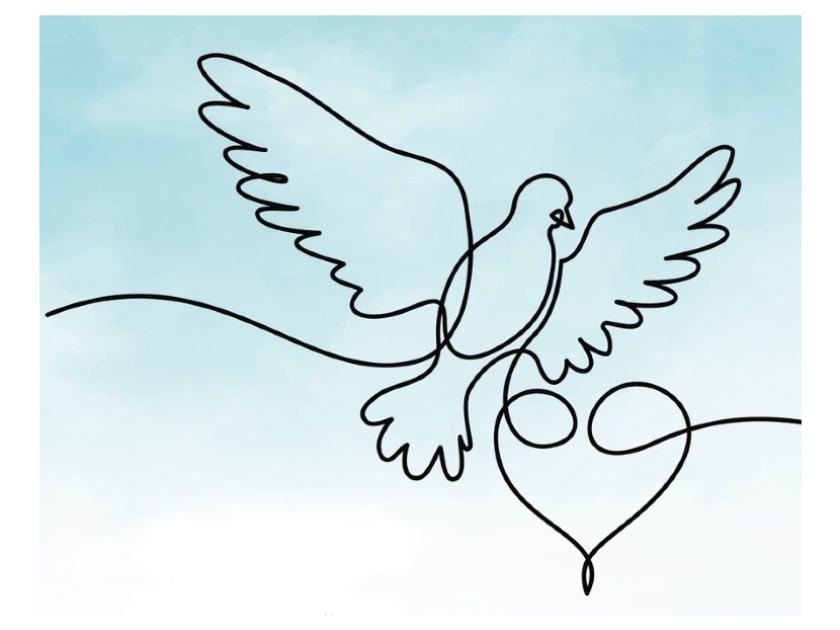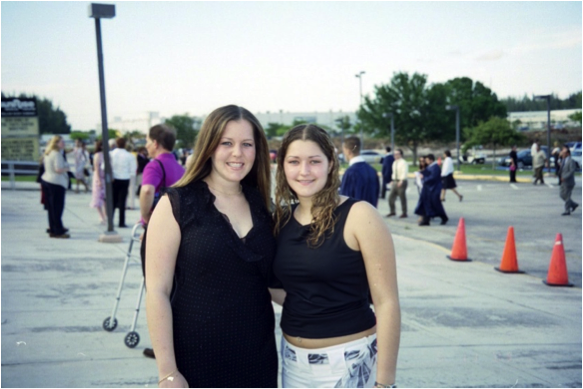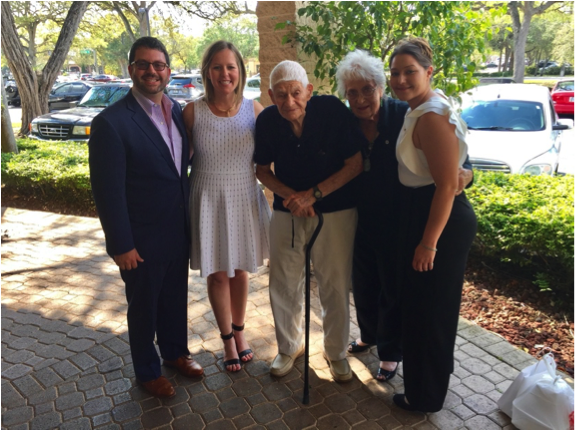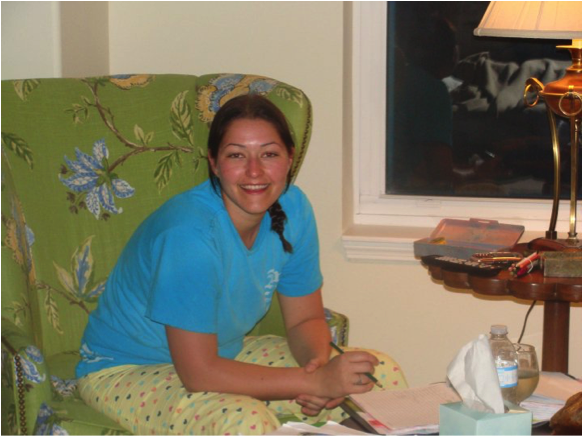Join a community of readers who are committed to Jewish stories
Sign up for JBC’s Nu Reads, a curated selection of Jewish books delivered straight to your door!

Edited from the cover of #QuietingtheSilence
My younger sister, Sari, and I grew up in the affluent, tightly knit Jewish community of Coral Springs, Florida. We were raised with strong family values and were lucky to spend a lot of time with our grandparents, cousins, and a large group of very close family friends. Overall, even with our parents’ divorce when we were in elementary school, we had a very normal American upbringing.

But as Sari got older, coping with the day to day was difficult for her. In high school, she finally was diagnosed with bipolar disorder, and like many others who suffer with this disease, she cycled through medications, treatments, and therapists. Treatments would help for a few months and then suddenly wouldn’t. Different triggers would set her off. Little issues became big ones, and she met them with screaming, insults, and sadness. Faced with constant frustration at herself, she started looking for other ways to be happy, including occasional drug use.
Unable to help herself, Sari responded outwardly by devoting her life to helping others. In college, she volunteered with children who had autism and eventually earned a master’s degree in sign language education. She was teaching third grade, and both the students and their parents talked about how much she cared for them. She even made YouTube videos translating popular music into sign language.
When things were good, she was good. Really good.
At thirty years old, Sari had touched many lives for the better and seemed to have kicked her bad habits. To others, she presented a warm, nurturing young woman. But when things got bad in her mind, coping without drugs must have seemed an impossible task.

It was our grandmother who found her. Hurricane Irma was battering Florida, and Sari had lost power, so she went to stay with our grandparents. After spending a wonderful day together cooking and grading school papers, she was set to spend the night. Later that evening, Grandma heard her on the phone having a tough conversation and then heard the front door close. This call obviously had been a trigger for Sari. Looking in the hall, Grandma realized she was gone.
When Grandma called her cell, Sari said she just had to run an errand and would be right back. She returned about midnight and immediately went into the bathroom. After about 10 minutes of silence, Grandma knocked. No answer. She opened the door and found Sari hunched over, barely breathing. She called 911. Can you imagine a ninety-year-old woman doing CPR on her granddaughter? The ambulance came, and the EMS team administered Narcan before rushing her to the hospital. (If you don’t know, Narcan is a medication used to block the effects of opioids, especially in an overdose.)
When my mom called me early that morning, I knew something was wrong. But I expected it to be about my grandparents, who were ninety and ninety-nine. I never thought it would be the news she shared: “We’re in the hospital. Sari overdosed.”
I immediately booked a ticket and flew home, and for the next several days, I don’t know how we survived it. Why did this happen? We had so many questions. How did we not know what she was doing?
We do not believe Sari intentionally took her life. After losing a dear friend years ago, she said, “I won’t kill myself.” I don’t want people to experience how I feel now.” And there was no way she would do it at our grandparents’ house. She loved them so much. But likely unknown to her, the drugs she took were laced with fentanyl, a powerful and dangerous additive, and the drug became a game of Russian roulette.
She never regained consciousness. After several days and yet another brain scan, there was minimal brain activity and no improvement. She was living only because of a machine, and my family had a tough decision to make — one I don’t wish on my worst enemy. Eleven minutes after she was removed from the ventilator, she was gone. It was crazy to experience. You never think this could happen, but it did. Things can change very quickly.

Sari died on September 14, 2017, from a heroin overdose. Even worse, she wasn’t the only one. Within two days of Sari’s death, twenty-one other people in South Florida of various ages died from fentanyl-based overdoses.
So here we are two years later. Sari is buried with our other grandparents and a dear friend who also struggled with mental health. Her headstone is simple yet descriptive: Daughter, sister, granddaughter, friend. A menorah and a playing card. She was buried in the dress she was going to wear to my wedding, which was four months after she passed away.
At Sari’s funeral, we talked about how she struggled at different times in her life. We did not say she died from an overdose at the funeral, but most people knew. It took me six months to tell people outside of my inner circle how she died and to share my story. How do you talk about it? There is a stigma attached. Today, I feel comfortable saying it. I think it just took time. At the time, I couldn’t even focus on what happened.
Mom wasn’t ashamed. Our community knew she had a daughter who struggled with mental health. She talks about it today, and she’s OK. She’s stronger than we all imagined. My father, who lives far away, connected with other parents on Facebook and locally who have suffered through the same thing. My step-father suffered a stroke shortly after Sari died and is talking about it too. We couldn’t have gotten to where we are today without that same wonderful community of family and friends who supported us so much growing up and supports us just as much today. They never cease to amaze me by showing up with food, stories, and big smiles.
I’m less of a talker and more of a doer. I have taken every opportunity I could to make a difference in an area that needs so much work. I immediately started volunteering. It helped me with my grieving process. Being involved and trying to make change happen is the only way I know. Today, I am the executive director of the Blue Dove Foundation. I see daily how much connecting with people means and how many people are looking for light.
I have learned a lot over the past few years. I learned that in this national endeavor to fight opioid use, recreational users often get overlooked. I learned how tightly mental health is connected to drug abuse. And I learned it can happen to anyone — even when you come from a nice Jewish family. We as a society have made a lot of progress, but there still is so much room to grow. I learned help is out there through various organizations and a wealth of people; you just have to ask. And we need to talk more. We as a community need to quiet the silence that surrounds the issues of substance abuse and mental health overall. I hope you and others will join me in the conversation.
Gabrielle (Gabby) Leon Spatt is a genuine connector who is passionate about bringing people and organizations together to accomplish big dreams. A personal tragedy led Gabby to the The Blue Dove Foundation, an Atlanta-based non-profit focusing on mental health and substance abuse education, outreach and awareness through a Jewish lens. She devotes her time to her professional role along with community engagement through different leadership roles inside and outside the Jewish community.
The Blue Dove Foundation was created to raise awareness about and help address the issues of mental illness and substance abuse in the Jewish community and beyond. Based in Atlanta, we work with people and organizations across the United States and around the world. Erase the shame and stigma.